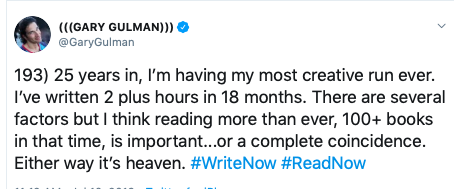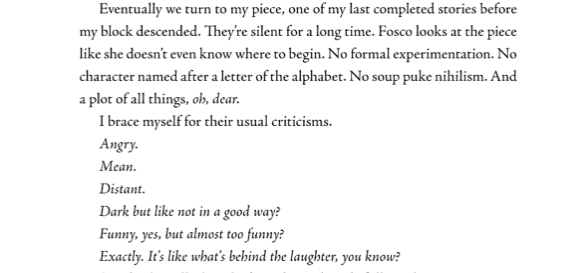
Last August, I was inspired by Malia and Sasha’s dad’s Summer Reading List—what was on it, the fact that he had one, that fact that he read something, anything, other than Putin Picture Books — and came up with my own Summer Reading List, where I chose my favorite book among each of my favorite genres: Biography, Essays, Novels, General Nonfiction, and E-Writing. This summer, I made up some new genres for some new favorite reads:
Favorite Love Letter To Walt Whitman And Meditative Strolling: The Wander Society—Keri Smith. You had me at hello Spiritual and Physical Wandering, Walt Whitman, Secret Society, and Secret Society of Walt Whitman-Inspired Spiritual and Physical Wandering.
I’m a big believer in books presenting themselves to us when we’re ready for them. 18-year-old me would have rolled his eyes so far back his retinas would have detached. But 28-year-old me was floating. This was a trip—a slow, wonderfully plodding trip that celebrates solitude and the mundane.
“But it isn’t easy,” said Pooh. “Because Poetry and Hums aren’t things which you get. They’re things which get you. And all you can do is to go where they can find you.”
Favorite Quietly Profound Daily Practice: The Book of Delights—Ross Gay, a poet who, every day for a year, writes a short, lyrical, blustery essay about something he finds delightful that day. Delightful project. Delightfully observant. Delightful dude who wavers between endearing curmudgeon and huge-hearted empath. Delightful reminder of the connection between documenting delight and feeling gratitude.
Favorite You’ll Know It When You See It: The Faraway Nearby— Rebecca Solnit (thanks for the rec, @JamesonToole !). A unicorn of a memoir about storytelling itself, togetherness, Alzheimer’s, memory, California. When I read the first paragraph on the first page, I thought, “you know, she might just be Joan Didion 2.0.” Sure enough, in the first sentence of the second paragraph, she quotes Didion’s maybe most famous line: “We tell ourselves stories in order to live.” Each chapter is a high-wire act of storytelling, zooming in and out of micro and macro stories—the riffs, the riffs within the riffs, the shifts from tight first person out to third, from intimate memoir to more distant journalism and art criticism. And in each chapter, she somehow doesn’t fall off the high wire. She writes that “books are where we meet in solitude” —or, as I like to call it, Introverted Happy Hour, where the conversations are across time and space:
Listen: you are not yourself, you are crowds of others, you are as leaky a vessel as was ever made, you have spent vast amounts of your life as someone else, as people who died long ago, as people who never lived, as strangers you never met. The usual ‘I’ we are given has all the tidy containment of the kind of character the realist novel specializes in and none of the porousness of our every waking moment, the loose threads, the strange dreams, the forgettings and misrememberings, the portions of a life lived through others’ stories, the incoherence and inconsistency, the pantheon of dei ex machina and the companionability of ghosts.
Favorite Book By An Author Referenced In Good Will Hunting: A Power Governments Cannot Suppress— Howard Zinn. (*Insert joke about an annoying, left-leaning, twenty-something dude in Boston named Will recommending Howard Zinn)
Favorite Don’t Overthink It: Slouching Towards Bethlehem—Joan Didion. (Thanks for the rec, @KevinWood !). Didion is to Creative Nonfiction what Paul McCartney is to Pop Music, and “Slouching Towards Bethlehem,” her first essay collection, is her Abbey Road. Sometimes you just want to play the hits (“Notes from a Native Daughter” is definitely her “Golden Slumbers/Carry That Weight”). In the last few years, she’s sneakily become the writer whose prose I most admire—the clean syntax, the understatedness, the way she quickly gets to the verb, the way she sits on the sidelines observing but gently pokes her head in every so often to remind you she’s in charge.
HALFTIME:
Favorite Bite-Sized Fiction: “The Collected Stories of Lydia Davis”—Lydia Davis. What I wrote to myself in my Notes app on my phone—typos and all— when I got to about page 12 of this: ”HFOLY EFFIN SHIT SHE’S A FORCE—A FUNNY FORCE, A TENDER FORCE, A THOUGHTFUL FORCE. What a hero for short, poignant shore stories that are snappy and fierce and full and tender and funny AF AND UNDERSTATED and spare 💙💙💙”
(I stand by all that.)
Favorite Satire Of The Pretentious MFA Writing Workshop: Bunny—Mona Awad. Not the whole novel, actually (it’s Mean Girls until it becomes Gone Girl)—just this excerpt early on, the most unsettlingly accurate, hilariously scathing look at workshop critique:

(My first time getting workshopped last year, a classmate said that my piece about moms and tattoos was “earnest and charming and funny…if that’s what the writer’s going for.” As in, this is NOT Trauma Porn or Edgy Enough or a Graphic Sexual Escapade While Referencing David Foster Wallace Or Jonathan Franzen, so take this shit elsewhere!)
Favorite Personal Essay That’s Also My Favorite Eulogy To Toni Morrison: “Toni Morrison Taught Me How to Think”—Wesley Morris. “For all of the astonishing edifices she built, the woman knew what to do with a brick”—can we frame that sentence and hang it in The Louvre?
Favorite Prologue Of A Book That Combines Heartbreak, Romance, And The Mysticism Of Astral Weeks, Which Is Approximately My Sixth Favorite Album Of All Time: Astral Weeks: A Secret History of 1968—Ryan H. Walsh. A sprawling look at Boston in 1968, centered around Van Morrison’s iconic album—which I had NO IDEA he wrote while living on GREEN STREET in Central Square (!!!). But, I found myself way more compelled by the author’s own associations with the album (and very relatable, platonic friendships with older women) than in the minutiae of 1968 Boston:
“Astral Weeks is my favorite record of all time. Like its eloquent champion Lester Bangs, I also believe the record to be some kind of “mystical document,” despite the decidedly gritty circumstances around its creation. When I discovered it at twenty-two, I was experiencing my first true heartbreak—I felt like a shell of myself, carved out by loneliness. In my final year at Boston University, I”d fallen madly in love with someone, but she was torn between me and her longtime hometown boyfriend. Enter my upstairs neighbor, a palm reader whom I only knew as “grandmother.” (She called me “grandson.”) Studying our hands in the dim light of her apartment, she concluded that a cosmic accident had allowed us to meet, but that didn’t mean we would stay together. Grandmother turned out to be right; the woman I loved moved to San Francisco, and something held me back. I stayed in Boston, where I was born and raised.
I had never heard of Astral Weeks; I was indifferent to Van Morrison. But something about seeing the cover, there in a record-store rack in Newton, commanded me to slap down eleven bucks and take it home. From the very first notes, the music seemed to serve as some kind of protection for the part of me that held on to hope and the idea of real love. A force field grew around me with each listen, as songs like “Sweet Thing” and “Madame George” helped beat back any encroaching cynicism. The album had presented itself in a moment when I needed to hear it, presuming that I was not alone in my despair. Years later, I met a woman who put on Astral Weeks at the end of our first date. As the title track began and she held up the vinyl album cover, smiling, I can only assume my jaw hit the floor; I recalled all that talk about cosmic accidents and wondered if I was in the middle of another one. (Reader, I married her.)”
Favorite Book I’ve Read Twice This Year, Favorite Memoir I’ve Ever Re-Read (?!), And, Still, Probably, The Single Funniest Book I’ve Ever Read: Priestdaddy—Patricia Lockwood. This was a commuting book in March and a lounging book in July. It’s one of two things in 2019 that I’ve been SO floored by, SO drawn to, and SO eager to revisit (Fleabag is the other!). Lockwood’s like a young Mary Karr: crazy-talented, fiery poet whose huge break comes elsewhere with her first memoir (the NYT just named Liar’s Club the fourth best memoir of the last 50 years (!) and Priestdaddy an honorable mention), who, like Karr, is dark and irreverent and radically perceptive and thoughtful. Only, I think Priestdaddy is even better! Liar’s Club is a little too densely detailed and doesn’t breathe as well as “Lit,” her better, more recent memoir or as well as Priestdaddy. When I read Priestdaddy again, I started transcribing all my favorite passages, typing up the most LOL-inducing sentences, studying where and how the laughs come where they do—because I was floored with her specificity and cheekiness and wanted to unpack it all. She’s a magician.
Favorite Quote: If you can sit quietly after difficult news;
if in financial downturns you remain perfectly calm;
if you can see your neighbors travel to fantastic places without a twinge of jealousy;
if you can happily eat whatever is put on your plate;
if you can fall asleep after a day of running around without a drink or a pill;
if you can always find contentment just where you are:
you are probably a dog.
– Jack Kornfield
